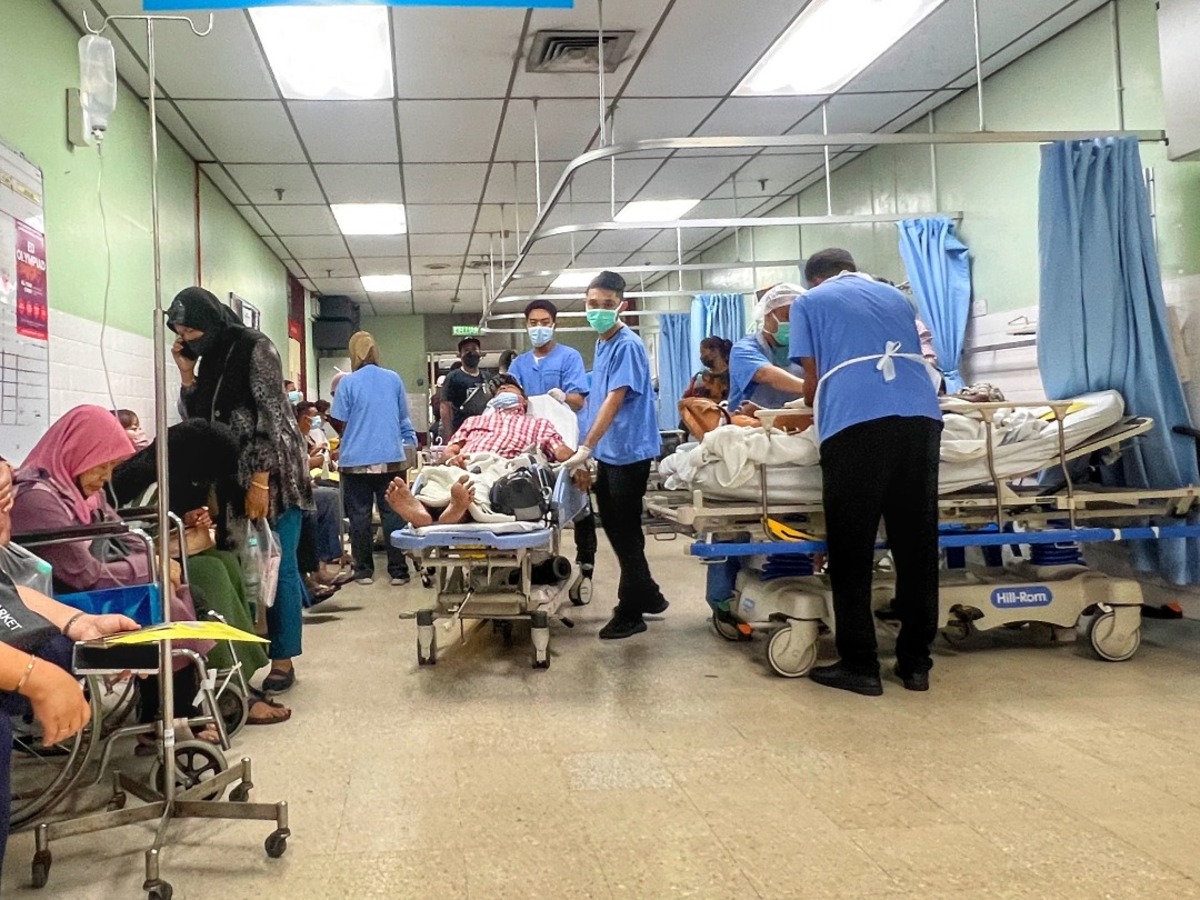KUALA LUMPUR, August 4 – The Ministry of Health (MOH) has defended its nationwide relocation of more than 4,000 medical officers, despite doctors’ concerns of a public health care crisis self-inflicted by government bureaucracy.
After multiple statements by medical groups like Hartal Doktor Kontrak (HDK) and the Malaysian Medical Association (MMA) – as well as a series of CodeBlue stories on severe staffing shortages in major hospitals triggered by the relocation exercise that came into effect last July 31 – the MOH finally issued a statement on the matter today.
However, the statement – issued under Health director-general Dr Muhammad Radzi Abu Hassan’s name – was general in nature and did not address specific concerns of doctor shortages affecting patient care and safety, and potentially even causing patient mortality in certain hospitals.
These included five tertiary referral centres that lost more than 80 to nearly 120 trained medical officers each, such as Negeri Sembilan’s state hospital, Tuanku Ja’afar Seremban Hospital; Melaka’s state hospital, Melaka Hospital; and Sungai Buloh Hospital, Sultan Idris Shah Serdang Hospital, and Selayang Hospital in Selangor.
“We are also paying attention to issues related to the running of services, such as insufficient human resources, by making improvements through hiring contract officers to fill needs in the service that continue to increase and by absorbing contract officers into permanent positions,” Dr Muhammad Radzi simply said in his statement.
HDK and MMA have already pointed out that replacing trained doctors with “floating” medical officers (those who just completed their housemanship) was not a solution because these junior doctors require training of at least three to six months.
Health Minister Dr Zaliha Mustafa, in a July 29 post that was widely panned by government doctors, said that vacancies would be filled only by December, five months away.
She told a press conference last Saturday that the MOH only approved 332, or 20 per cent, of 1,843 appeals by medical officers to either remain in their current placement or to transfer to a different placement.
Dr Muhammad Radzi also appeared to confirm CodeBlue’s analysis of the MOH Human Resource Division’s (BSM) placement list of 4,149 contract medical officers, who obtained placements for permanent appointments, that showed the relocation exercise mainly benefited Sabah, Sarawak, Johor, and Pahang.
Borneo combined received a net gain of more than 1,000 medical officers, while Johor and Pahang scored a net gain of more than 400 doctors each. This came at a price for states in the central peninsula – namely Negeri Sembilan, Melaka, Selangor, and WP Kuala Lumpur and Putrajaya – that made net losses of more than 130 to nearly 190 medical officers each.
“In 2022, the appointment of contract medical officers to permanent positions was implemented at a large scale and this was continued in the year 2023 with the offers of permanent appointments, based on 4,263 vacancies for permanent positions in health facilities nationwide, especially in states with a high number of vacancies, like Sabah, Sarawak, Johor, and Pahang,” said Dr Muhammad Radzi.
“With this, it is hoped that the quality of health care service delivery nationwide will be better and more effective.”
The Health DG did not explain why the MOH did two things simultaneously – putting the permanent appointments and transfers into effect on the same date, July 31. More than 4,700 contract health care professionals had chosen placements for their permanent positions: over 4,100 medical officers, over 320 dental officers, and more than 300 pharmacy officers.
By doing both at the same time, not only did the transfers of more than 4,100 medical officers at the same time trigger a massive upheaval in the public health care system, but the affected doctors, dentists, and pharmacists were also not eligible to claim for transfer expenses because of a disruption in their period of service from contract to permanent.
If their permanent appointment was put into effect before their transfer, the government would have been obliged to cover their transfer costs. Gradual transfers of 4,000 over doctors over a period of three to four years would also mitigate sudden staffing shortages and service disruptions.
Yet, all Dr Muhammad Radzi said was that the MOH “appreciated” all medical, dental, and pharmacy officers who reported for duty at their new placement last July 31. The Health DG did not specify the attrition rate, or the number of those who failed to report for duty because they decided to give up on their permanent position offer.
“Through these new placements, officers will obtain more exposure about the health care system and can develop their own capacities. This experience will make officers more mature and empathetic, and tougher (berdaya tahan) in surviving their career as a public servant,” said the Health DG.
Medical officers who received permanent appointments this year have already been working in the MOH for at least four to seven years; they are not staff newly serving the public health service.
Some of the placement experiences that these doctors underwent in the MOH’s relocation exercise included pawning their gold and making Amanah Saham Bumiputera (ASB) withdrawals to fund their relocation from the Klang Valley to Borneo, as well as reporting for duty at a non-operational facility (the new Dungun Hospital in Terengganu that is still under construction as a “sick project”), only to be transferred to a “temporary” posting across the state 70 to 192 km away.
This is not to mention the likely exacerbation of burnout and resignations among doctors due to staff shortages that have already been forewarned by doctors in Selayang Hospital, Melaka Hospital, and Kuala Lumpur Hospital, among others.








